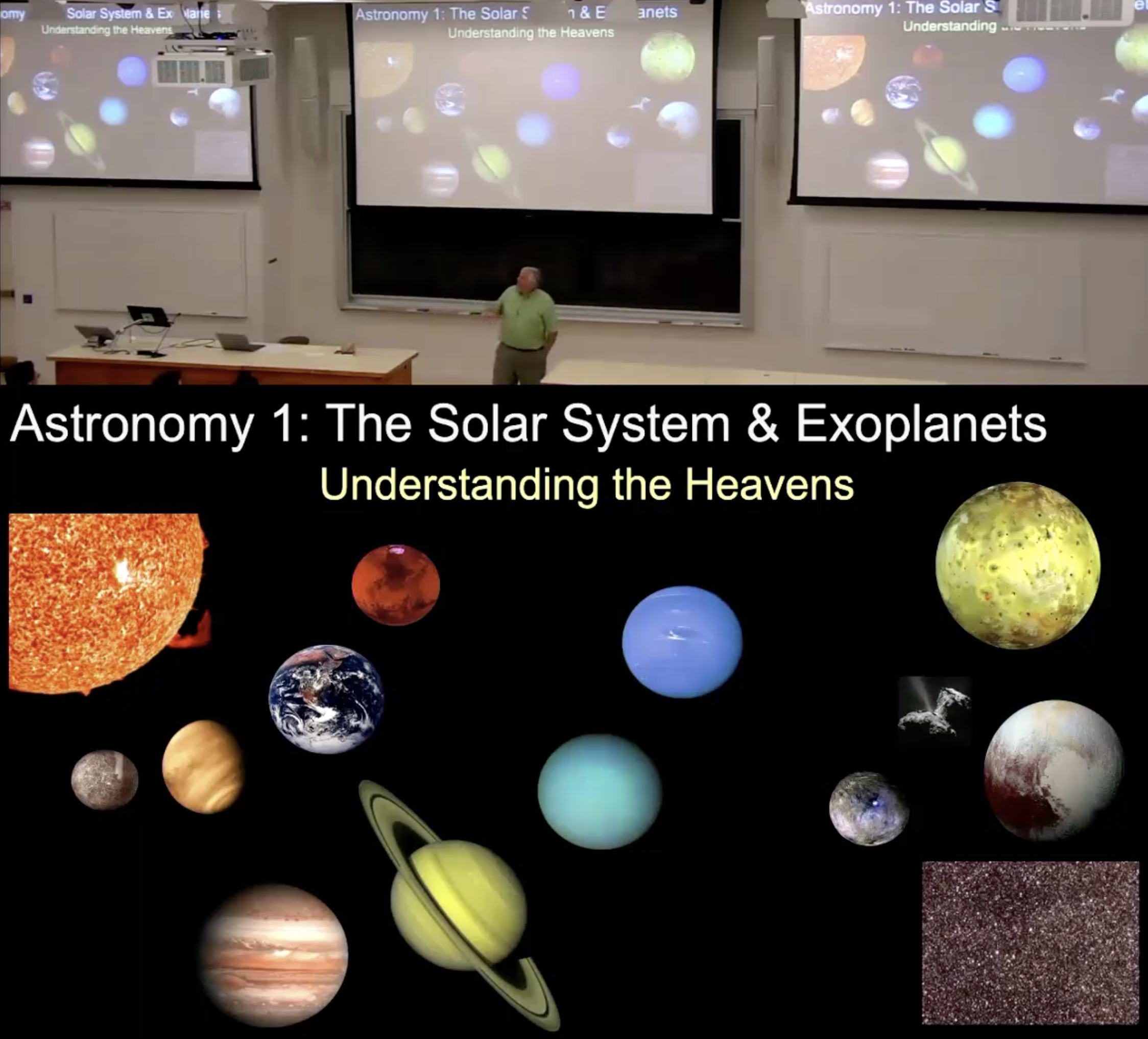Professor Brian Chaboyer, Professor Elisabeth Newton
Professor Chaboyer Introduces A1
Astronomy 1 is an introduction to the solar system and planets which orbit other stars. The course is geared towards a non-science student who has little or no background in astronomy. This is primarily a descriptive course, but math (at the level of high school algebra, including the use of logarithms) will be used, particularly in the labs. Astronomy 1 has four virtual (computer based) labs which you will do with a lab partner, and satisfies the SLA distributive. You will view lectures from the summer 2019 version of this course asynchronously (on your own schedule), and be placed in small groups to discuss the lecture quizzes. Canvas discussions and virtual office hours (conducted via Zoom videoconferencing) will supplement the lectures and readings. Assessment will be based on four lab reports, lecture quizzes, weekly tests and a final project.
